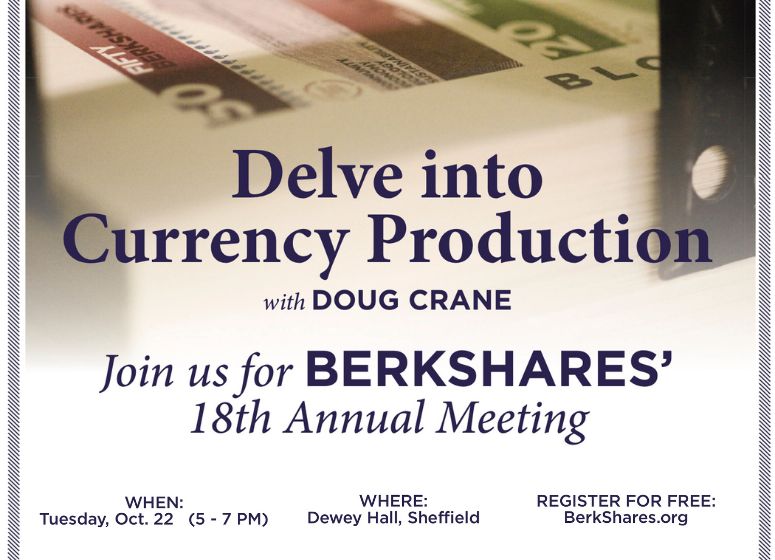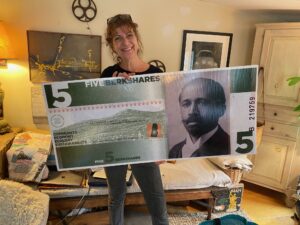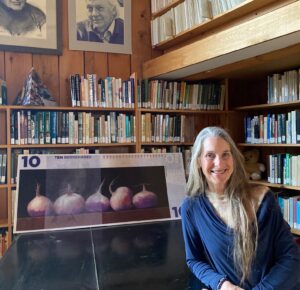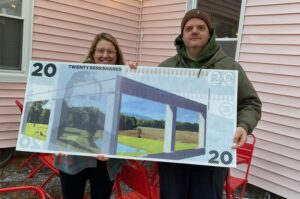
In the Berkshires of western Massachusetts, keeping things local is not a fleeting trend — it’s a way of life. I have lived and worked here for more than two decades, and the spirit of buying local products and supporting local merchants is woven into the fabric of the way folks move across this rural region.
In 2006, the debut of BerkShares, a local currency, fully backed by US dollars and held in community banks for use at participating businesses, made sense. The beautiful paper bills, each extolling a different local hero (from W.E.B. DuBois to Norman Rockwell) and artists (from Janet Rickus to Warner Friedman), extended the region’s love of all things local to the economy. I supported the endeavor — there are myriad perks to keeping money in local circulation — but I watched from the sidelines: Who has time to go to the bank and exchange money? Not this single, work-from-home mama.
Now that BerkShares are digital, I’m totally on board
When BerkShares went digital in late March, though, I was suddenly all in. The popularity of cash is dwindling, and I’m guilty of being a huge credit card (and occasional Venmo) user — both of which come with per-swipe and percentage-based fees that line the pockets of big banks, not local merchants. When I caught wind of the new app, making it free to use and receive BerkShares, I immediately signed up (netting 10 free BerkShares for doing so!) — then promptly went on a mini shopping spree.
BerkShares, both the paper and digital versions, don’t cost local merchants anything, unlike credit cards, which cost merchants anywhere from 1.3% to 3.5% per transaction. By using a local currency, merchants keep more of their earnings and shoppers are encouraged to spend their money locally rather than at big-box stores or other, non-local retailers that don’t accept BerkShares. Digital BerkShares work similarly to Venmo — you can pay any participating vendor for free using the BerkShares app.
My first stop? A stunning all-things-for-the-home shop where I’d been eyeing a new compost bin (yes, this mom-of-a-certain-age gets excited about composting). Coupled with my teenager’s at first polite and now more aggressive suggestion that I stop patronizing big-box, online retailers when the same products are available locally, it felt entirely fitting. Plus, a trio of options made it easier than I’d imagined to pay for my vintage enamel compost bin using BerkShares (which, when linked to my bank account, allows for easy loading of my digital wallet — up to $2,000 per load up, per day, or $5,000 per week).
I then drove one town over to pick up some sourdough pizza crusts from a local bakery, which I also paid for with BerkShares. Later in the weekend, the aforementioned teenager and I went out for dinner: While the restaurant where we noshed did not accept the local currency (and, as a result, incurred a fee), the ice-cream shop next door did — and so I happily scanned (after choosing their newest exotic combo: date, marzipan, and orange peel).
We rounded out the shopping spree with a trip to the used bookstore where we paid for a pile of books on birds, wild edibles, and native shrubs using our (now) favorite local currency.
BerkShares are part of a long history of regional currencies
Struggling to make sense of it all? Let me connect the dots. When I use BerkShares to complete a transaction at one of 400 local merchants who accept them, the funds remain in our tight-knit community. Business owners can recirculate the currency to take care of day-to-day tasks — at the neighborhood print shop or creative agency, food co-op or compounding pharmacy, not to mention myriad farms that are gearing up for market season — at no charge. Those vendors can then use the BerkShares to do their own errands or, better yet, pay themselves and their employees, keeping BerkShares circulating among community members who hold the same values.
“It’s a commitment to the local economy,” said Jared Spears, director of communications at the Schumacher Center for a New Economics in Great Barrington, Mass., the “think and do tank” that created and runs BerkShares. Over the past 15 years, BerkShares have stimulated the economy to the tune of $10 million in circulation — a number the Schumacher Center hopes to see grow as the digital platform gains steam.
Said Rachel Moriarty, BerkShares program administrator, “It can be easy for us to reach for our credit card in-store, but all those processing fees add up, creating a burden on our small businesses as money trickles out of our local economy.” As to the real selling point? It is always free to send and receive digital BerkShares, and they can be exchanged at a 1:1 rate with USD. Converting BerkShares back to USD comes with a 1.5% fee, so keeping them in circulation among local merchants is the goal.
Regional currency is nothing new, by the way. BerkShares echo the local currencies widely used throughout the early 1900s that served as a tool for community economic empowerment and development toward regional self-reliance. Furthermore, trading in BerkShares distinguishes the local businesses that accept the currency from those that do not, helping to foster relationships between business owners and residents of the region (as well as cultivating B2B relationships). Plus, the nonprofit is paying it forward. A major aim at BerkShares remains “looking to pilot programs other areas can replicate in their own communities,” said Moriarty.
Personally, it feels great to have furthered my extant commitment to shopping and buying local to include paying in local currency — which, despite taking some time to get on board, has empowered me to further support a truly vibrant, thriving local economy — with zero hidden costs (and tons of benefits!). I mean, what’s not to love about that?





